The Problems Bacon Grease Creates for Your Plumbing
In a post-breakfast haze, you may accidentally pour the leftover bacon grease down the drain. If you’re tempted to flush it with water and repeat this plumbing indiscretion again, think twice. Before you clog the pipes, or worse, take a look at why bacon grease and your home’s plumbing system don’t mix.
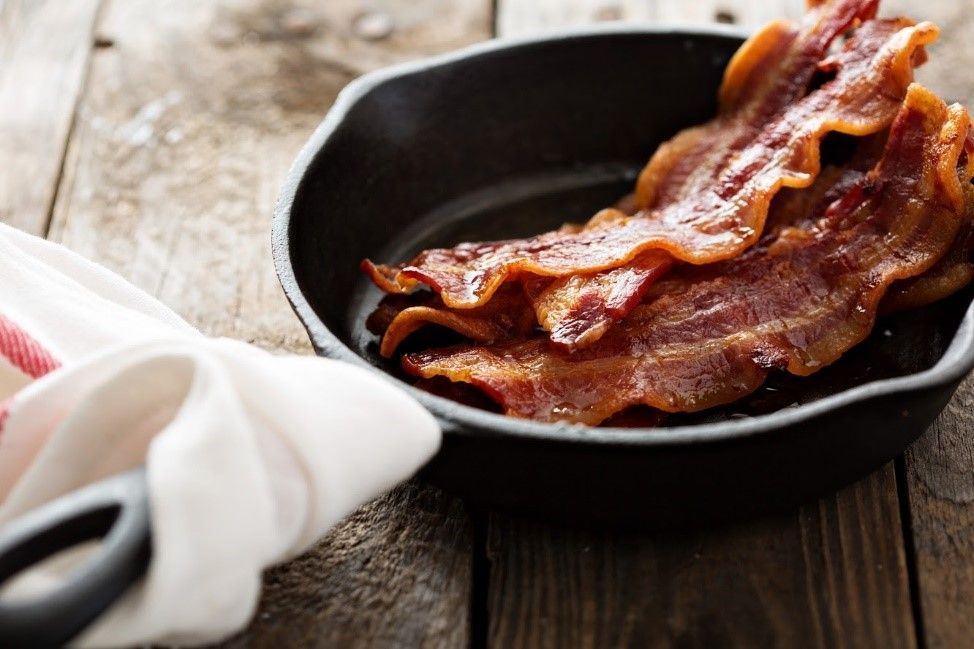
The Science Behind the Pipe Problem
Anyone who has ever felt or seen bacon grease knows that it’s sticky and congeals quickly. It makes sense that, in your pipes, the oily substance would coat the sides – eventually building up and causing clogs.
At room temperature, bacon grease (and other oily cooking byproducts) remain liquid. Liquids in drains won’t typically causes problems. But, as you may have already seen, bacon grease won’t freely flow down your drain. Issues arise as the grease cools, turning from a liquid into a pipe-clogging solid. Left untouched, the quickly cooling grease hardens and restricts pipes.
The Problem Bigger Than Your Pipes
If the hardened bacon grease stayed put in your sink’s drain pipe, you wouldn’t have a major problem. While you might need a plumber to disassemble the pipes under your sink and remove the blockage, this is a fairly minor repair. But if you continue to pour liquid bacon grease down the drain, you’re creating a much larger (and potentially more costly) issue.
As the grease-filled wastewater moves from your kitchen’s plumbing into the sewer, the fats begin to break down. If this sounds like an easy way for nature to remove the hardened substance, it isn’t. After breaking down into fatty acids and glycerol, the chemical components bind with calcium. The result is a sticky compound that adheres to the surfaces of the sewers and surrounding pipes.
Cleaning the drains inside your home, such as the kitchen sink’s pipes, won’t affect these sewage grease blobs. The fat mixtures can not only cause sewer backups in your home but also affect your community. Known as fatbergs (like icebergs, but made from fats), these hardened greasy messes will stay put and can clog municipal sewage systems.
While your home’s bacon grease won’t cause its own fatberg, it can contribute to the development of this not-so-natural phenomenon. To avoid the creation of multiple fat deposits in municipal sewage systems, along with stopping clogs in your own home, learn how to properly dispose of bacon grease.
The Best Way to Handle Bacon Grease Messes
If you can’t pour the liquid grease down the drain, what should you do with it? The steps to dispose of this fatty product include:
- Let it cool in the pan. Handling hot bacon grease is dangerous. Instead of burning your hands, let the grease sit in the pan (away from heat) until it has cooled completely. You’ll know that it’s cool when it congeals and hardens.
- Remove it from the pan. Clean the pan with a spatula or a paper towel. Push the grease into a garbage bag or another sealable container.
- Remove the leftovers. Chances are you’ll leave behind a few grease streaks or remnants. Instead of washing the pan in the sink, use a paper towel to clean any remaining grease.
- Pour the liquid into a heat – safe container. Sometimes waiting for the grease to cool isn’t an option. If that’s the case, pour it into a heat-safe container – such as a glass jar or a foil-lined cup. Place the container into the fridge or freezer and wait for it to cool completely.
- Discard the trash as soon as possible. Hardened bacon grease can leave behind an unpleasant odor. Avoid leaving the fat in your kitchen’s trash can.
You don’t always need to throw away the grease. If you cook with fat, strain the leftover grease, put it into a heat-safe container, and freeze it to use within the month (or before it goes bad).
Do you have a grease clog in your kitchen or main sewer drain? Contact
Quality Plumbing for more information.
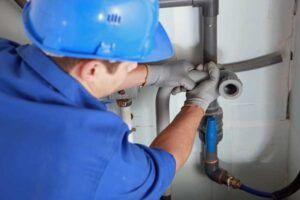
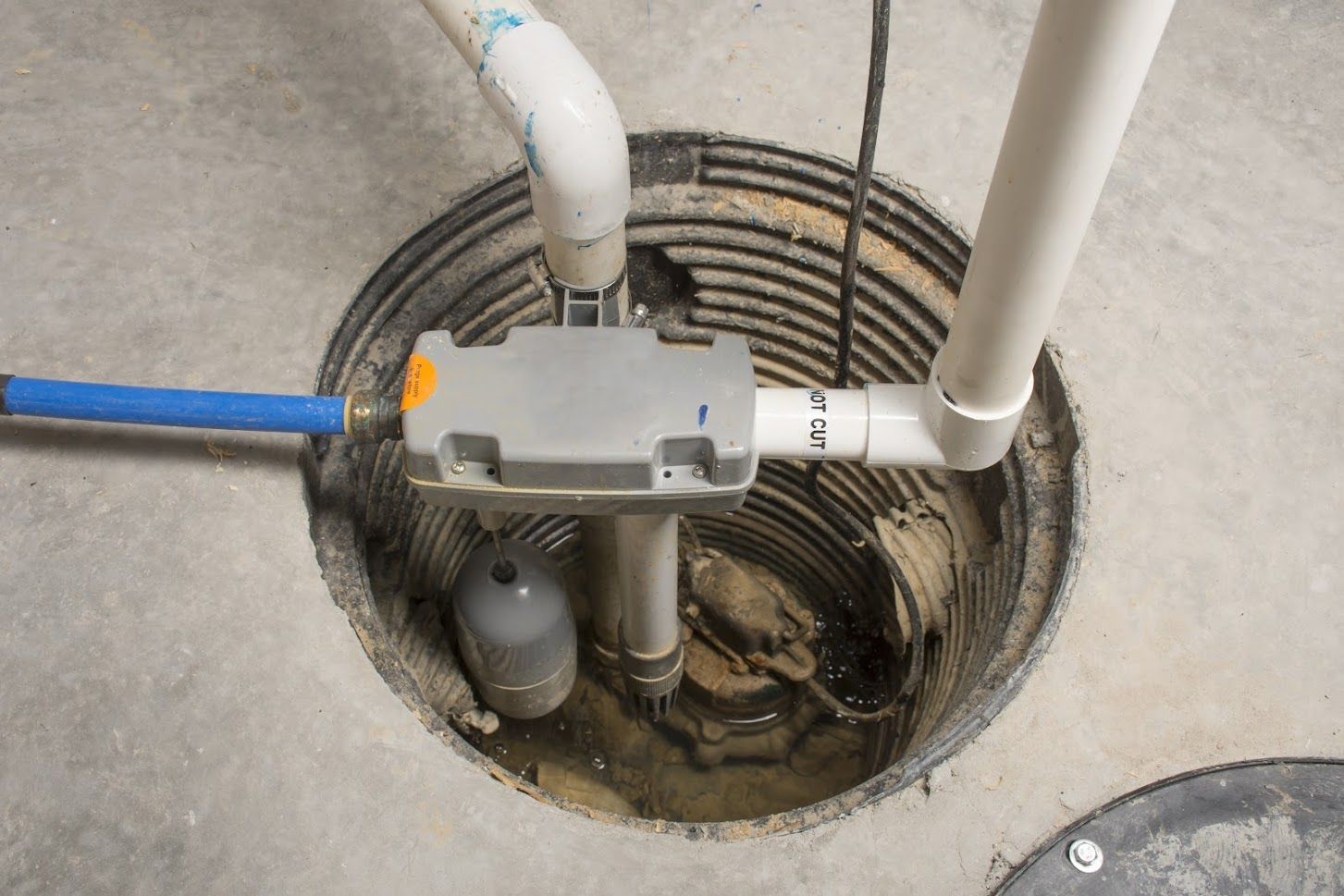

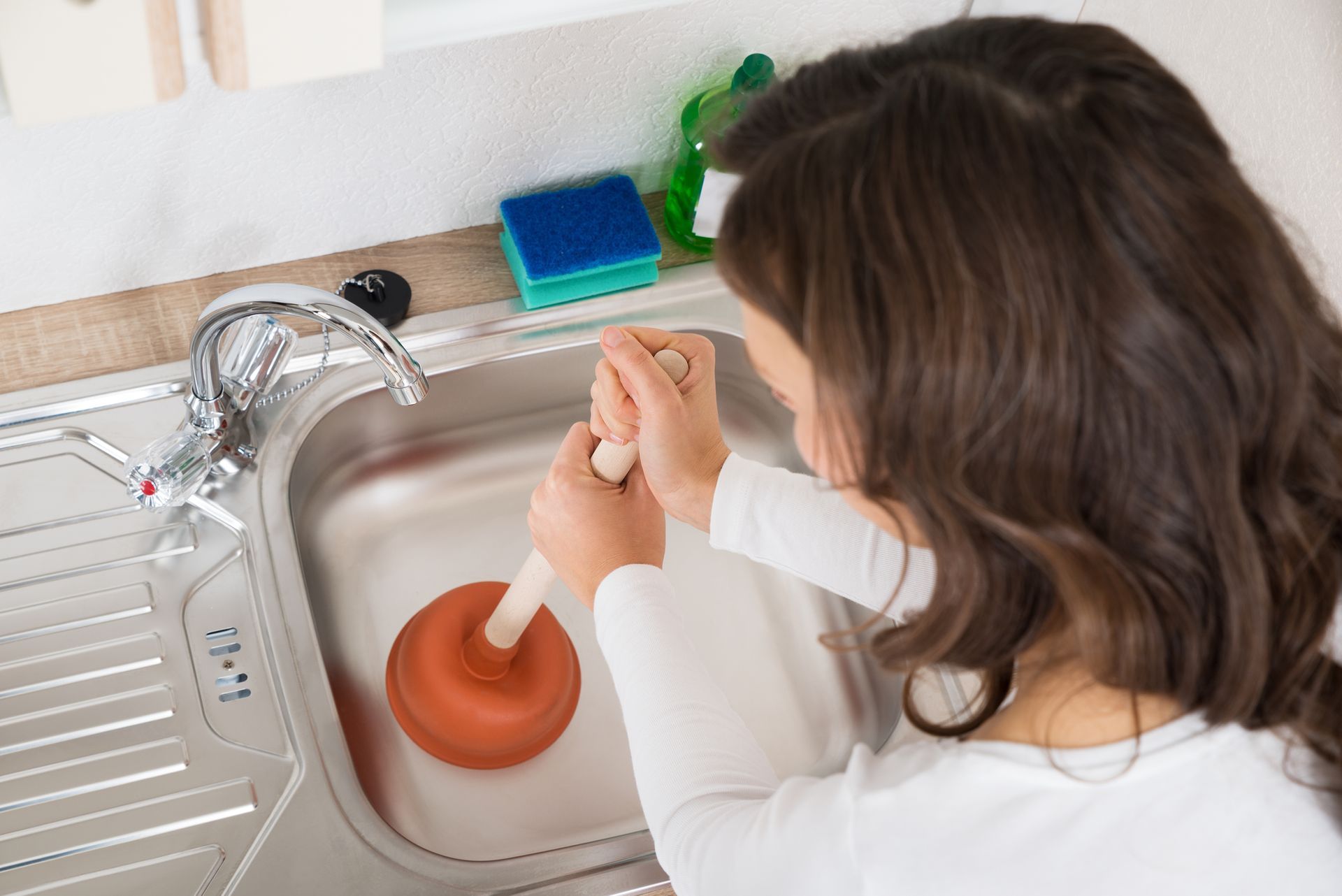

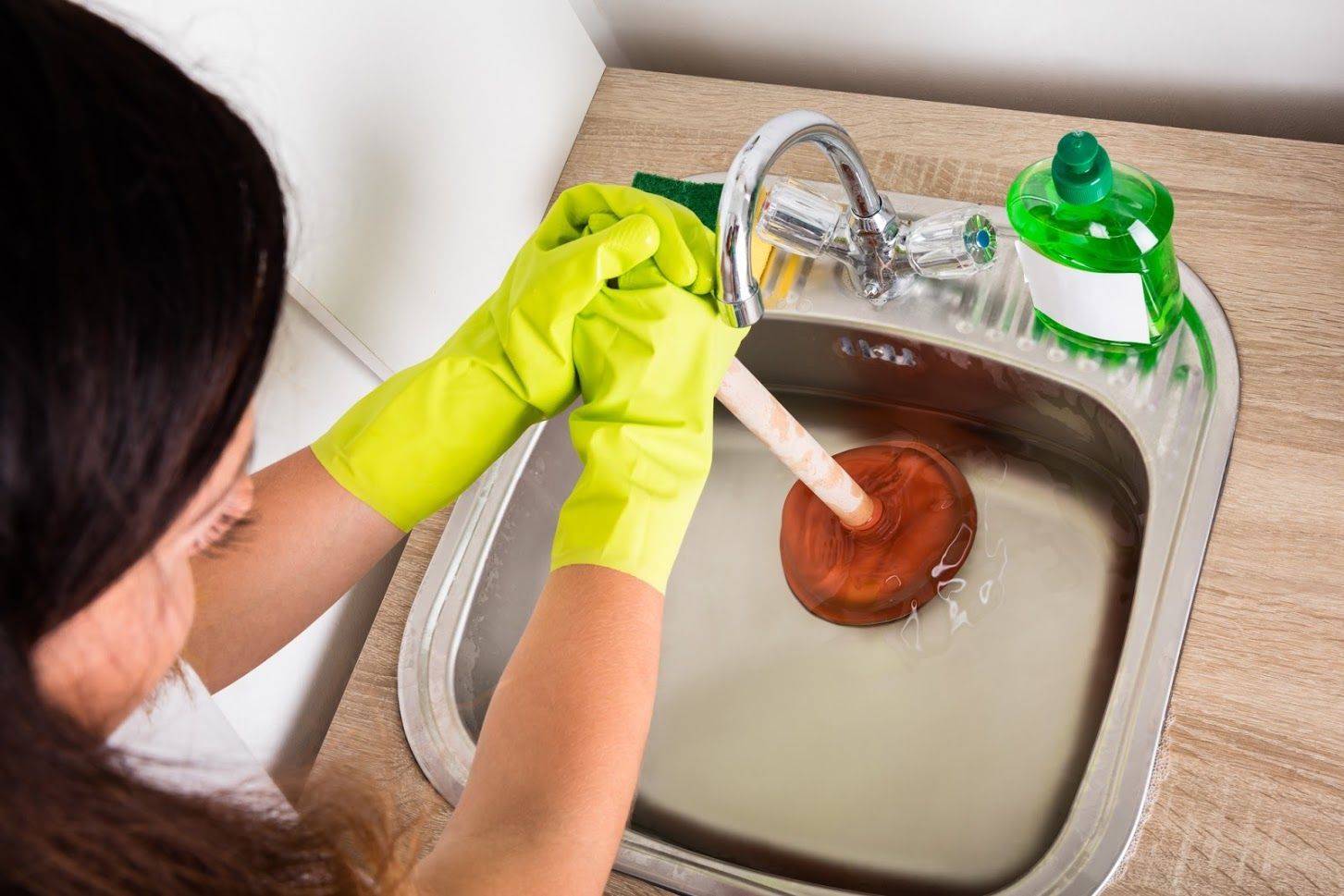


★★★★★
The total process from booking a service call, by phone, to the installation of a steel reinforced waterline hose on our refrigerator, was a pleasurable experience. A retired plumber recommended QP. Jeff had to pull out the refrigerator, remove the plastic waterline, install the new waterline, check to make sure the water dispenser was working and put the refrigerator back. Jeff was careful and mindfull of our wooden floor as the refrigerator was in a built-in cabinet. Since we live in a condo we want to eliminate all possibilities for a water leak. Jeff not only did his skillful job, he also educated us on the different water supply lines. I would recommend QP.
- Janeine G.
Button
★★★★★
Quality Plumbing did a rough-in plumbing install for a bathroom and kitchen sink in my basement. Very communicative, helped plan the space, and did a great job on the install. Will be using them again!
- Ian H.
Button
★★★★★
Called them when my water heater broke, they were over same day with a new one. Logan is great, he's fixed a couple things over the last year and is always professional and informative.
- Nick B.
Button
★★★★★
Quality plumbing is amazing 👏 when my brothers home had a problem with water pressure, they were able to schedule quickly, identify the problem and provide cost effective solutions quickly. When they did the work, they were on time on budget and cleaned up everything afterwards. Thank you for your great service Quality Plumbing! …
- Rich R.

★★★★★
Quality Plumbing is my go-to plumbing company for all my projects. I had one big project and after meeting Jeff, I’ve specifically requested him to come out for my other 2 projects. He’s incredibly punctual, efficient, and keeps the area nice and clean. Great to communicate with and provides clear answers to all my questions. Jeff is very professional and knowledgeable in his craft. Every time I call, Delaney will always pick up my phone calls and get me scheduled right away. Never had great success with plumbing companies until I started working with Quality Plumbing. They have unbeatable prices and will provide you with an honest solution to your problems. Highly recommend choosing Quality Plumbing!
- Alex D.
Button

★★★★★
The total process from booking a service call, by phone, to the installation of a steel reinforced waterline hose on our refrigerator, was a pleasurable experience. A retired plumber recommended QP. Jeff had to pull out the refrigerator, remove the plastic waterline, install the new waterline, check to make sure the water dispenser was working and put the refrigerator back. Jeff was careful and mindfull of our wooden floor as the refrigerator was in a built-in cabinet. Since we live in a condo we want to eliminate all possibilities for a water leak. Jeff not only did his skillful job, he also educated us on the different water supply lines. I would recommend QP.
- Janeine G.
Button
★★★★★
Quality Plumbing did a rough-in plumbing install for a bathroom and kitchen sink in my basement. Very communicative, helped plan the space, and did a great job on the install. Will be using them again!
- Ian H.
Button
★★★★★
Called them when my water heater broke, they were over same day with a new one. Logan is great, he's fixed a couple things over the last year and is always professional and informative.
- Nick B.
Button
★★★★★
Quality plumbing is amazing 👏 when my brothers home had a problem with water pressure, they were able to schedule quickly, identify the problem and provide cost effective solutions quickly. When they did the work, they were on time on budget and cleaned up everything afterwards. Thank you for your great service Quality Plumbing! …
- Rich R.

★★★★★
Quality Plumbing is my go-to plumbing company for all my projects. I had one big project and after meeting Jeff, I’ve specifically requested him to come out for my other 2 projects. He’s incredibly punctual, efficient, and keeps the area nice and clean. Great to communicate with and provides clear answers to all my questions. Jeff is very professional and knowledgeable in his craft. Every time I call, Delaney will always pick up my phone calls and get me scheduled right away. Never had great success with plumbing companies until I started working with Quality Plumbing. They have unbeatable prices and will provide you with an honest solution to your problems. Highly recommend choosing Quality Plumbing!
- Alex D.
Button








